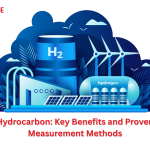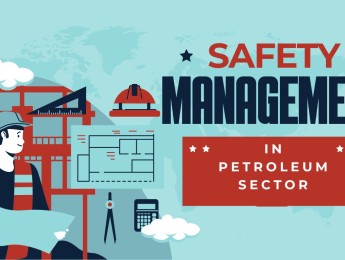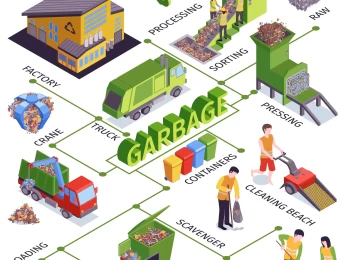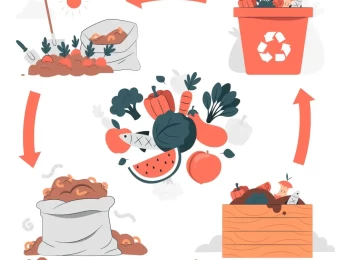Hydrocarbon measurement practices are essential to understanding the amount of hydrocarbon lost during energy production, which can affect both the environment and the profits of a petroleum business.
Naturally occurring hydrocarbons in crude oil are created when decomposed matter develops an increased amount of carbon and hydrogen, which can be lost in the atmosphere.
To reduce the risk of hydrocarbon loss, it’s essential to understand the processes of gas chromatography separation in a variation of saturated and unsaturated aliphatic compounds. To create an action plan for the future, you’ll need the most up-to-date technology and data to make informed decisions regarding potentially risk-based processes.
To truly appreciate and mitigate hydrocarbon loss, various systematic and practical hydrocarbon measurement procedures will need to be considered and applied in refineries where low-boiling aromatic and polynuclear compounds are created. You should also create well-structured contingency plans to repair and reflect on issues as they arise and keep all of your on-site team safe during the energy creation process.
Upon completion of this course, participants will be able to:
- Understand the theory and consequences of hydrocarbon loss.
- Create innovative mitigation methods within your operation.
- Develop systematic solutions to calculate hydrocarbon loss.
- Use data and systems to formulate effective risk assessments.
- Understand the effects of natural gas liquids and hydrocarbon fluids.
- Utilise meter factors and calculations to relieve vapour pressure.
- Demonstrate densitometer proving by pycnometer calibration.
- Develop procedures with health and safety regulations in mind.
- Communicate important changes to your team.
- Calculate the volumes of liquids in base conditions.
- Emphasise the development of NGL mixes using single-grade light hydrocarbons.
This course is designed for anyone responsible for managing petrochemical plants and monitoring the safe loss of hydrocarbons. It would be most beneficial for:
- Finance Managers
- Plant Managers
- Project Managers
- Planning Managers
- Supervisors
- Yield Accountants
- Engineers
- Maintenance Workers
- Health & Safety Officers
- Plant Engineers
This course uses various adult learning techniques to aid full understanding and comprehension. Participants will review common risk elements of hydrocarbon loss within the petroleum industry and how these can have wider effects on the economic successes of individual companies. They will view videos and interactive presentations to see real-world plants and how they manage hydrocarbon loss and change to maintain their success and profits.
They will be presented with various tools and techniques to accurately monitor their systems accurately and make predictions based on trending hydrocarbon measurements. In groups, they will work to understand the risk areas regarding both health and safety and their organisation's finances and develop contingency plans to help mitigate the risk elements they have discovered.
Day 5 of each course is reserved for a Q&A session, which may occur off-site. For 10-day courses, this also applies to day 10
Section 1: Hydrocarbon Flow Measurement
- Flow chart measurement.
- The fundamentals of Hydrocarbon measurement.
- The effects of hydrocarbon loss.
- Static measurement vs. dynamic measurement.
- Coriolis flow meter measurements.
- Operation theory into practice.
- Identifying the causes of increased loss.
- Troubleshooting problems.
Section 2: System Calibration & Proving
- The proving and calibration principle.
- Secondary measurement techniques.
- The flowmeter journey.
- Identifying performance issues.
- Instating a meter prover.
- Calibrating your meter provider.
- Report calculations and systematic troubleshooting methods.
- Meter factor and repeatability uncertainty.
Section 3: LACT Installations
- LACT and ACT installations.
- Component overviews and system functionality.
- Liquid metering systems.
- Valve maintenance and repair.
- Temperature monitoring.
- Pressure instrumentation in your metering systems.
Section 4: System Maintenance & Monitoring
- Building the stream flow into computer systems.
- Web Server introductions and PC setup.
- Report editing and display monitoring.
- Automation and remote system monitoring.
Section 5: Understanding Safety Procedures
- Hydrocarbon risks.
- Communicating with your maintenance team.
- Drills and reactions to system failure.
- Backup monitoring.
- Remote-based system maintenance.
- Safety equipment and regulations.
Section 6: Communicating Risk
- Accurate record-keeping and audit trails.
- Change and control risk elements.
- Continuity planning and development.
- Common industry risk factors.
Section 7: Loss of Volume Calculations
- Volume correction factors.
- API MPMS CH11.1.
- Calculation of petroleum quantities.
- API MPMS CH12.
- Hydrocarbon calculations for the future.
- Creating prediction models to mitigate loss.
- Operation value and development.
Upon successful completion of this training course, delegates will be awarded a Holistique Training Certificate of Completion. For those who attend and complete the online training course, a Holistique Training e-Certificate will be provided.
Holistique Training Certificates are accredited by the British Assessment Council (BAC) and The CPD Certification Service (CPD), and are certified under ISO 9001, ISO 21001, and ISO 29993 standards.
CPD credits for this course are granted by our Certificates and will be reflected on the Holistique Training Certificate of Completion. In accordance with the standards of The CPD Certification Service, one CPD credit is awarded per hour of course attendance. A maximum of 50 CPD credits can be claimed for any single course we currently offer.
- Course Code IND01-124
- Course Format Classroom, Online,
- Duration 5 days













